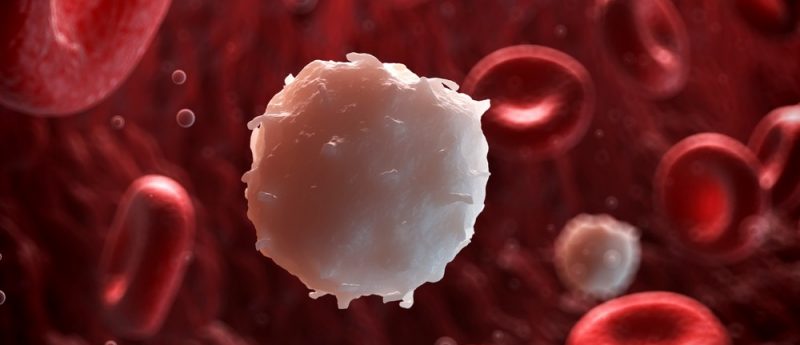Two targets are better than one: novel treatment holds promise for graft-versus-host-disease

Researchers demonstrate that dual inhibition of specific pathways could reduce the risk of graft-versus-host-disease resulting from stem cell transplantation without affecting the immune system’s ability to fight infection and tumor cells.
Researchers from the Moffitt Cancer Center (FL, USA) led by Bryan Betts have demonstrated that the dual inhibition of Aurora kinase A and JAK2 effectively inhibits the development of graft-versus-host-disease (GVHD) in mice and maintains infection- and tumour- suppressing components of the immune system.
The treatment of cancer patients with high dose chemotherapy often results in the death of bone marrow-derived stem cells, resulting in the requirement of allogeneic stem cell transplantation. Unfortunately, this is associated with an increased risk of GVHD caused by grafted donor cells attacking host cells that are perceived as foreign.
GVHD most commonly affects the skin, digestive system and liver and is a leading cause of non-relapse mortality following allogeneic stem cell transplantation.
Donor and host blood tests are always performed to allow human leukocyte antigen typing prior to such stem cell transplantation with the aim of reducing the risk of GVHD. Unfortunately however this tissue typing technique is not always successful and GVHD may still occur.
With the aim of reducing GVHD, transplant patients are also administered prophylactic medicine however these have low selectivity and can supress the activity of the immune system. This leaves patients more vulnerable to serious infection and reduces the ability of donor immune cells from fighting against cancer cells.
The Moffitt research group are therefore focused on developing more effective GVHD prevention techniques that specifically target components of the immune system that contribute to GVHD only.
Aware that Aurora kinase A and JAK2 pathway activation contributes to GVHD, the researchers have developed a drug that simultaneously inhibits both pathways. This Aurora A/JAK2 inhibition in human T-cells in vitro maintained antitumor responses of cytotoxic T lymphocytes but importantly also promoted the differentiation of regulatory T-cells which prevent GVHD. This treatment also significantly reduced GVHD in mice.
“This novel prevention strategy warrants further investigation because of its potential to reduce the risk of GVHD and possibly be more effective and selective than commonly used GVHD treatments currently available today,” concluded Betts.
Sources
Betts BC, Veerapathran A, Pidala J et al. Targeting Aurora kinase A and JAK2 prevents GVHD while maintaining Treg and antitumor CTL function. Sci. Transl. Med. 9(372). Doi: 10.1126/scitranslmed.aai8269 (2016) (Epub ahead of print); https://moffitt.org/newsroom/press-release-archive/2017/moffitt-cancer-center-researchers-develop-novel-treatment-to-prevent-graft-versus-host-disease/